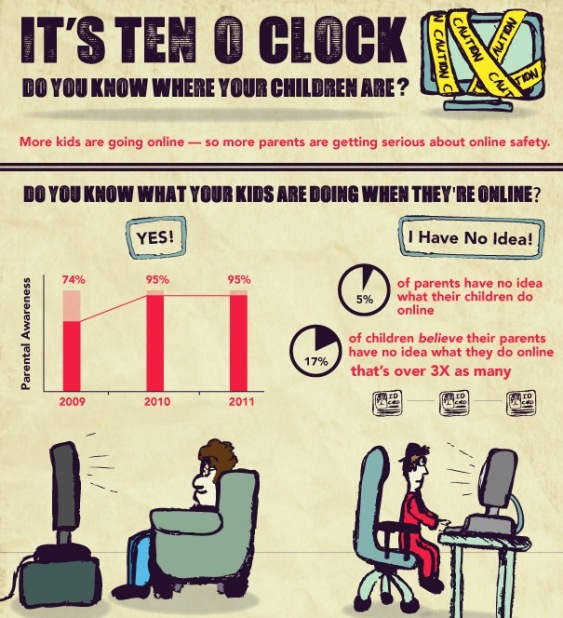Internet Safety for Kids & Teens
During 2011, FBI-related scams were the most reported offense, followed by identity theft and advance fee fraud.
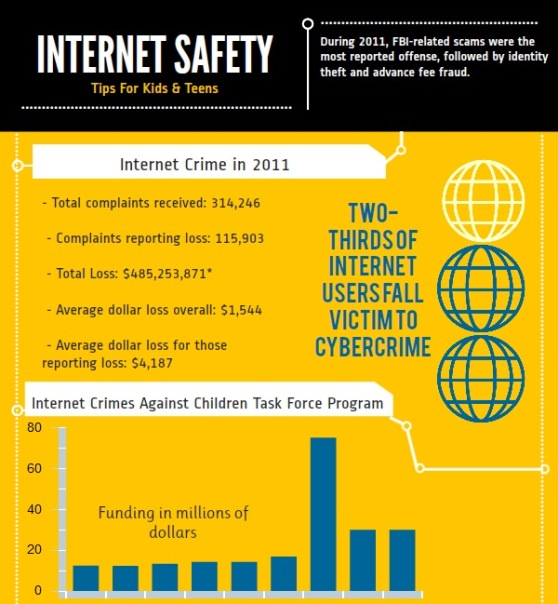 Source: lexero
Source: lexero
You are not Safe Online!
Consumers don’t have legal rights to control how their personal s data is shared. A study from Stanford University found supposedly anonymous data collected on personal web browsers were gathered and then sold.
 Source: onlinemarketingdegree
Source: onlinemarketingdegree
Kids & Online Safety
More kids are going online – so more parents are getting serious about online safety. Do you know what your kids are doing when they’re online? 5% of parents have no idea what their children do online. 17% of children believe their parents have no idea what they do online that’s over 3X as many.
A History of Hacktivism
Hacktivism is defined as “the nonviolent use of legal and/or illegal digital tools in pursuit of political ends.” From anonymous’ takedown of the F.B.I website to the Syrian governmant’s hack of its online opposition, hacktivists have made serious headlines this year.
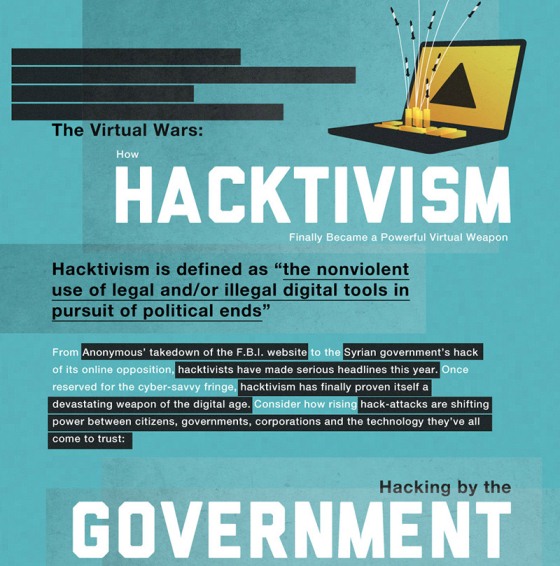 Source: frugaldad
Source: frugaldad
Know your Enemies Online
Do you know all of the people in your neighborhood? Think of the internet as a huge virtual neighborhood where it’s impossible to know everyone and difficult to tell the bad guys from the good guys.
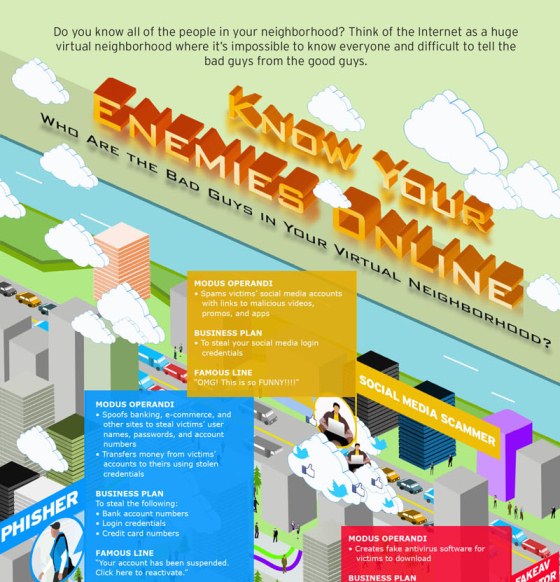 Source: trendmicro
Source: trendmicro
What to Pirates, Coffee Pots, and Smiley Faces have to do with Kids Online?
The first computer-to-computer message is sent, supposed to be the word “login,” but the network crashed when the letter “g” was typed. Parents are blissfully unaware that the internet exists.
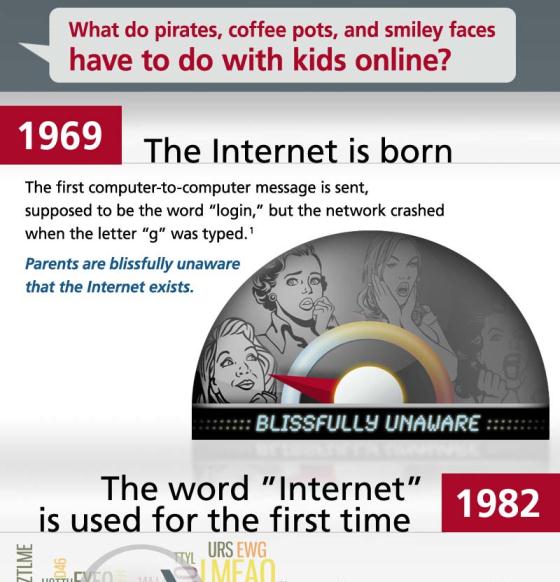 Source: internetsafety
Source: internetsafety
Securing yourself from a World of Hackers
In a recent survey conducted by Zonealarm, 79% of consumers were found to use risky password construction practices, such as using personal information and common words. Here are examples of these in order from the number one most commonly used password of all time.
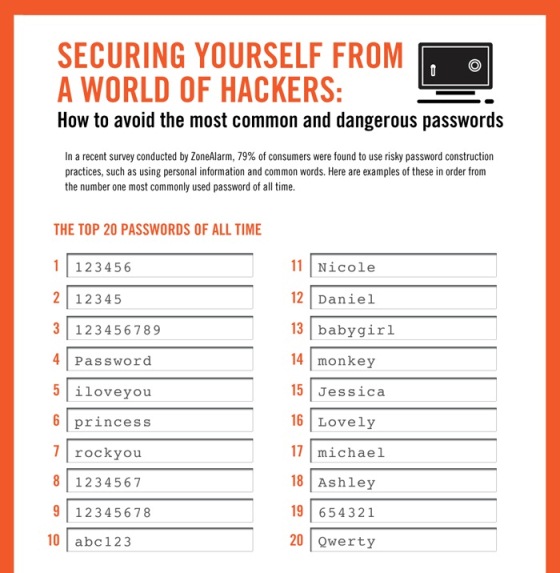 Source: zonealarm
Source: zonealarm
Is my Computer Infected?
A computer virus is a program that infects files on your computer or network server, and then makes copies of itself. Some can damage or destroy your files.
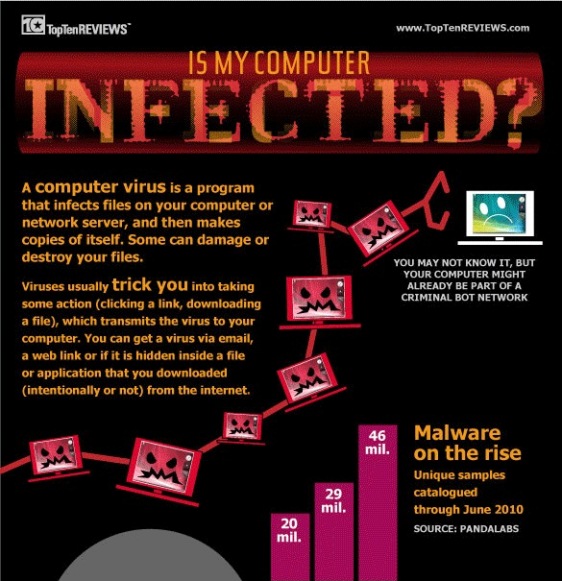 Source: toptenreviews
Source: toptenreviews
Computer Invaders: 25 Viruses
The year 2011 marks the 25th anniversary of the very first pc virus. As soom as computers and networks spread globally, hackers invaded by creating viruses of all shapes and sizes – sometimes just for fun, then for money, and now for espionage and outright warfare.
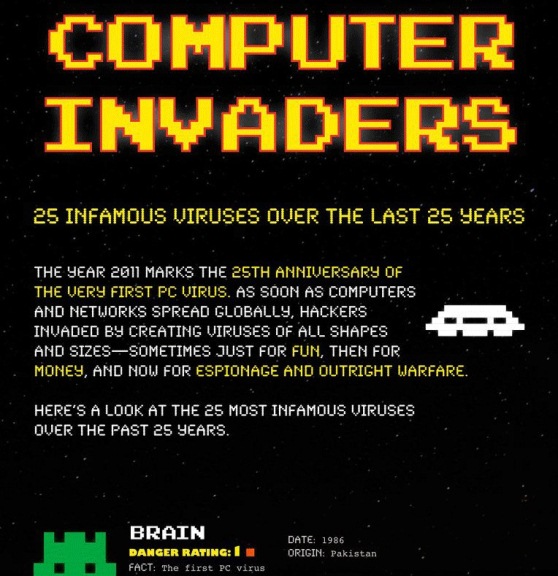 Source: f-secure
Source: f-secure
A Short History of Hacking
Hacking has been around as long as computers as a way to reconfigure or reprogram a system to give access to someone who otherwise shouldn’t have that access. In the media any electronics manipulation is often referred to as hacking, though “cracking” may often be more appropriate. Thanks to hacking, computer geeks can be cool and dangerous.
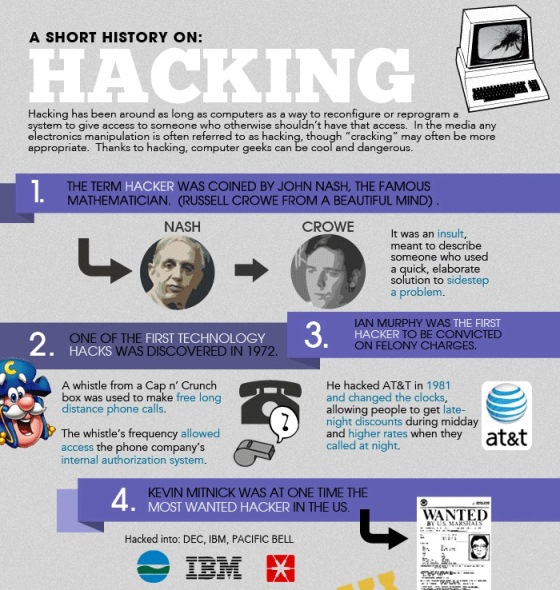 Source: onlinemba
Source: onlinemba


